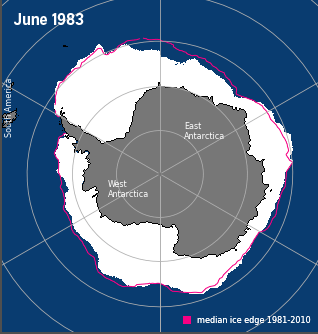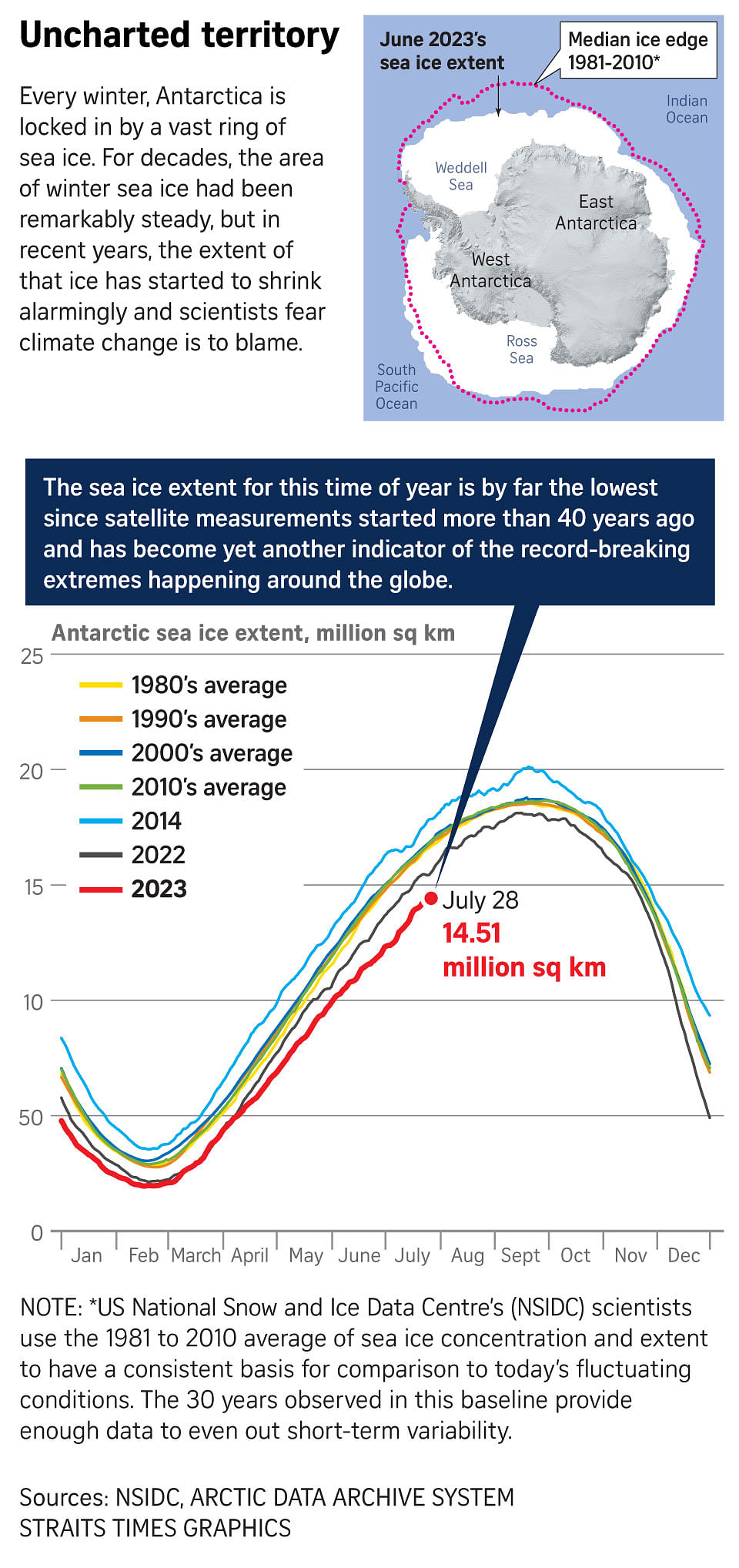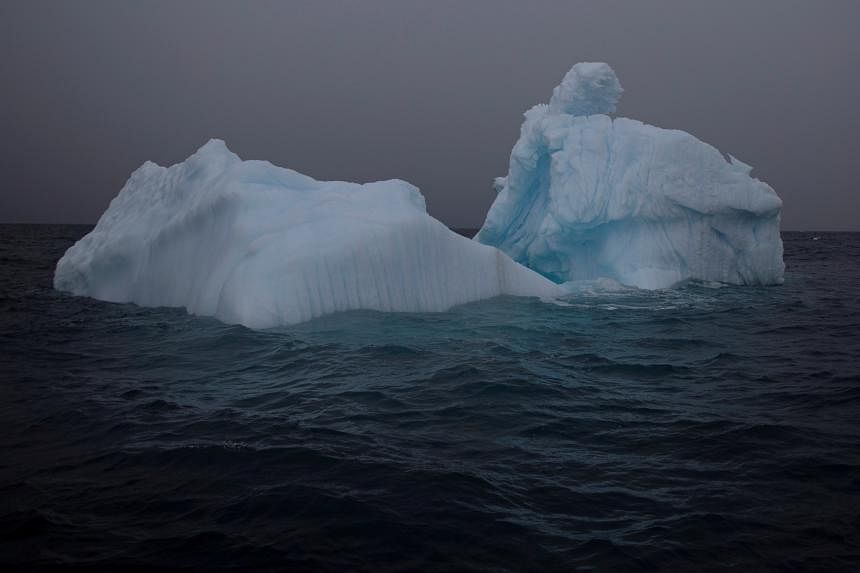SINGAPORE - Around Antarctica, the area of winter sea ice is hitting historic lows, alarming climate scientists who say the reduction is so dramatic that it could be signalling a major tipping point for the frozen continent.
And what happens down south affects the rest of the globe, said Professor Benjamin Horton, director of the Nanyang Technological University’s Earth Observatory of Singapore, which was part of the Republic’s first science-based expedition to Antarctica in February 2023.
“Antarctica might be 10,000km away from Singapore, but changes on this continent will affect our climate and the vulnerability of our country to sea-level rise. Everyone should be concerned about what’s happening in Antarctica,” he told The Straits Times on Wednesday.
Antarctica plays a unique role in regulating the global climate and ocean currents. Warming of the oceans and air around the region risks disrupting this key role as well as its delicate ecosystems.
Every winter, freezing conditions lead to the formation of a vast ring of sea ice around Antarctica, swelling from a few million sq km in summer to a maximum of 18 million to 20 million sq km around September. It is one of the planet’s greatest spectacles.
But for 2023, the sea ice extent is far below what it has been for this time of year based on satellite data going back to the late 1970s.
Right now, the sea ice area is roughly 2.4 million sq km – or slightly more than the combined size of Indonesia and Malaysia – less than the historical average.
It is also just over 1 million sq km less than 2022’s total of 15.62 million sq km for this time of year (July 28), according to Japan’s Arctic Data Archive System, which pools polar data from a number of scientific bodies.
“For 44 years, satellites have helped scientists track how much ice is floating on the ocean around Antarctica’s 18,000km coastline,” said Prof Horton.
And the record low sea ice extent comes as the world is suffering from record-breaking heatwaves on land and in the ocean, plus deadly wildfires and floods.
The planet has been setting a bewildering string of heat records, with last month the hottest June on record, while July is shaping up as the hottest month on record.
Some scientists say that what is happening in Antarctica, in statistical terms, is so extraordinary that the chances of it occurring is akin to winning the lottery.

Why does all this matter?
“These floating expanses of frozen seawater are central to how our world works. They regulate how much light our planet reflects, help ventilate the oceans, and host important ecosystems in the form of algal meadows on their underside,” explained Prof Horton.
Sea ice reflects large amounts of the sun’s light back out to space, keeping the Earth cool, whereas darker open water absorbs more of the sun’s heat.
Sea ice is also a vital habitat for penguins, seals and other animals and is essential for smaller creatures such as krill, which feed on the algal meadows during the winter.
Krill are tiny shrimp-like crustaceans that are a critical food source for fish, whales, seals, penguins and seabirds.
The cold waters off Antarctica are also critical for the creation of deep ocean currents that flow north carrying nutrients and oxygen vital to ecosystems in the tropics. Researchers have already found that global warming is starting to disrupt these currents.
Prof Horton and the Singapore science team experienced the effects of global warming on Antarctica first-hand when they visited in February, when the continent recorded its lowest summer sea ice extent on record.
“We experienced extremes in weather, from days when the temperatures were as warm as London and the Southern Ocean was as calm as MacRitchie Reservoir to blizzard conditions where you could not see your hand in front of your face and the swells were so large that our research ship had to escape to find calmer waters.
“But the link to climate is clear. The decrease in sea ice comes when the temperature of the world’s ocean surface has hit an all-time high.”
Prof Horton said that while melting sea ice does not directly raise sea levels because it is already floating on water, he expressed concerns about the knock-on effects that could ultimately affect all nations, including low-lying Singapore.
Sea ice helps protect vast floating ice shelves from battering waves, he explained.
Ice shelves stretch out across large areas of the sea in front of Antarctica, protecting the huge glaciers behind them.
“When we were in Antarctica, I saw how sea ice helps to buffer the effect of storms on ice attached to the coast,” Prof Horton said.

A key concern was the loss of sea ice over long periods.
“Increased wave action can weaken those floating ice shelves that themselves stabilise the massive ice sheets and glaciers behind them on the land,” he said.
More than 97 per cent of Antarctica is covered in ice.
“If all that ice melted, the world’s oceans would rise by 60m,” Prof Horton said.
Scientists are debating over the exact cause of the dramatic loss of sea ice, but most point the finger at the change caused by humans, which is already having a profound impact on Antarctica by hastening the melting of huge and destabilising ice sheets, especially in West Antarctica.
Exactly how things play out remains unclear.
But scientists fear the ongoing warming will accelerate ice loss, pushing Antarctica towards thresholds which, once crossed, would lead to irreversible changes, said Professor Tim Naish, director of Victoria University’s Antarctic Research Centre in New Zealand, in a commentary for The Conversation news site in June 2023.
“Current global heating is taking the Earth system across a threshold humans have never experienced, into a climate where Antarctica’s ice shelves and marine ice sheets can no longer exist and one billion people, currently living near the coast, will be drowned by rising seas,” he wrote.


